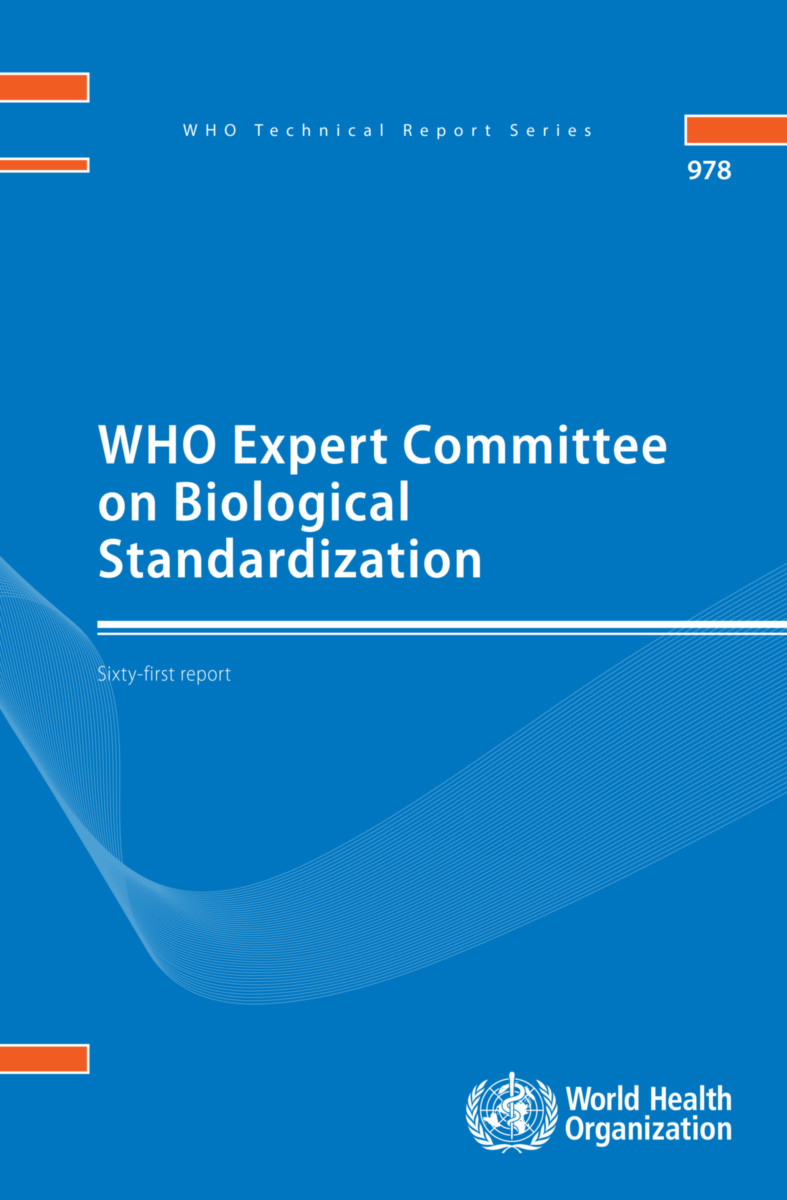WHO Expert Committee on Biological Standardization
Sixty-first Report
- Publisher
World Health Organization - Published
6th February 2014 - ISBN 9789241209786
- Language English
- Pages 395 pp.
- Size 6.25" x 9.25"
This report presents the recommendations of a WHO Expert Committee commissioned to coordinate activities leading to the adoption of international recommendations for the production and control of vaccines and other biologicals and the establishment of international biological reference materials.
The report starts with a discussion of general issues brought to the attention of the Committee and provides information on the status and development of reference materials for various antibodies, antigens, blood products and related substances, cytokines, growth factors, endocrinological substances and in vitro diagnostic devices. The second part of the report, of particular relevance to manufacturers and national regulatory authorities, contains revised WHO recommendations for evaluation of animal-cell cultures as substrates for the manufacture of biological medicinal products, for production and control of hepatitis B vaccines and for production and control of yellow fever vaccines. New WHO guidelines on the independent lot release of vaccines are also included. Finally, there is an update to the procedure for the prequalification of vaccines.
Also included are lists of recommendations, guidelines and other documents related to the manufacture and control of biological substances used in medicine, and of International Standards and Reference Reagents for biological substances.
World Health Organization
World Health Organization is a Specialized Agency of the United Nations, charged to act as the world's directing and coordinating authority on questions of human health. It is responsible for providing leadership on global health matters, shaping the health research agenda, setting norms and standards, articulating evidence-based policy options, providing technical support to countries, and monitoring and assessing health trends.


